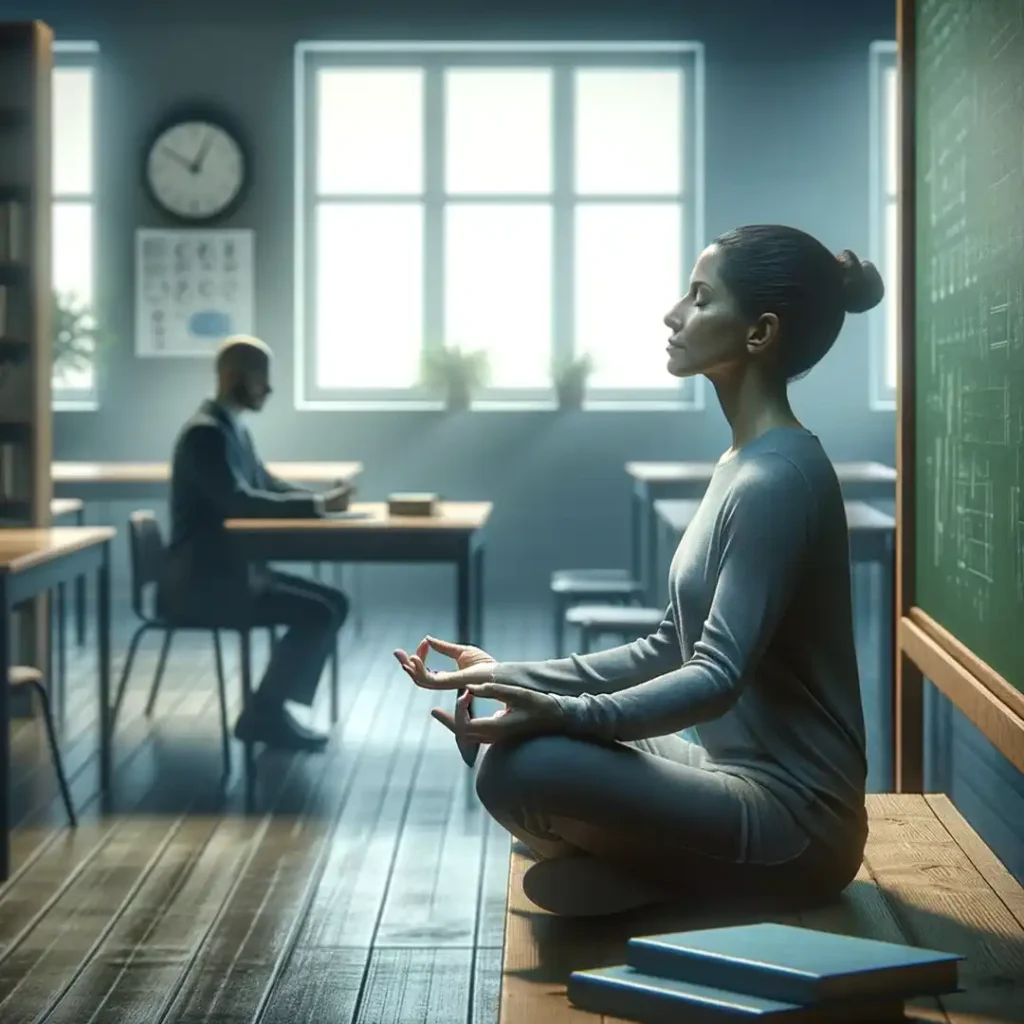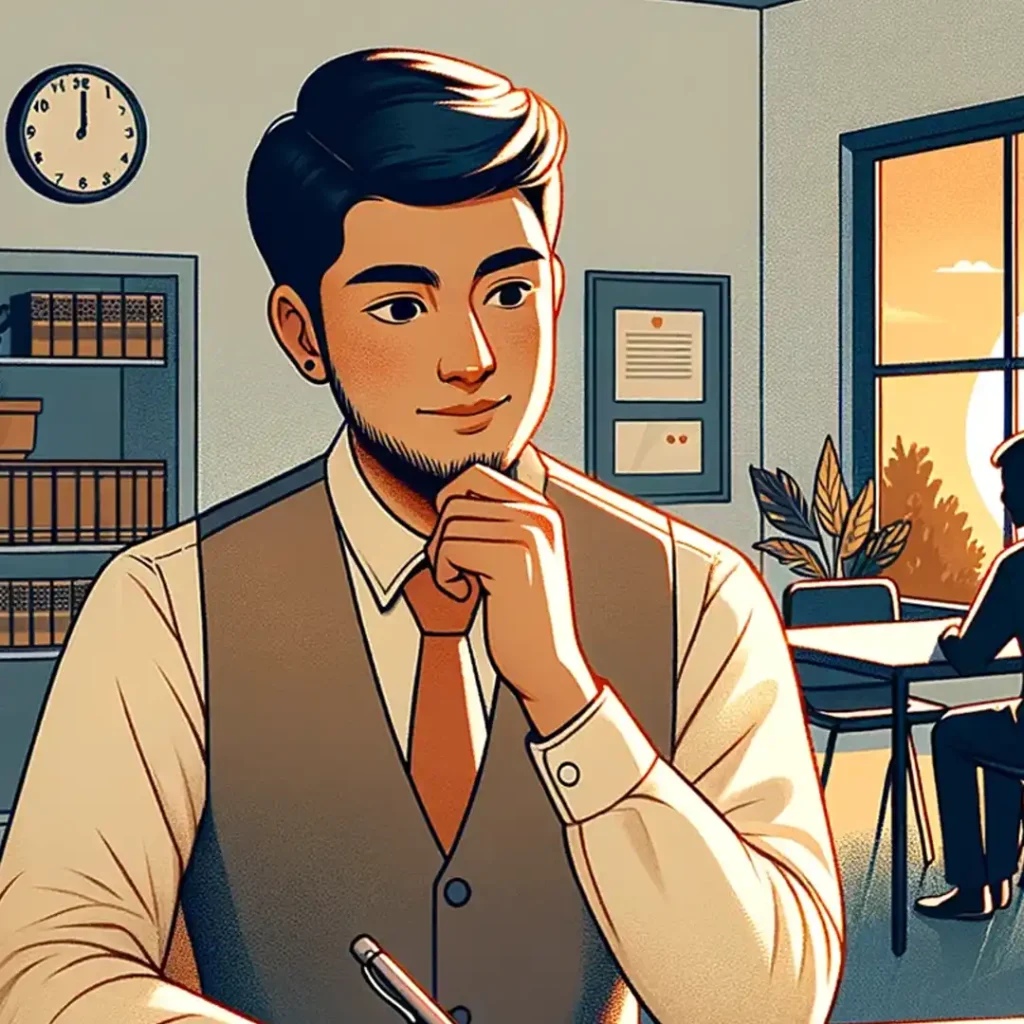Navigating the nuances of teacher interviews is a critical step in carving out a successful career in education. The ability to remain poised and confident in these settings is more than a skill—it’s an essential component that can profoundly influence the trajectory of one’s professional path. Teacher interviews are distinct in their requirements: they not only assess an individual’s educational qualifications and subject matter expertise but also evaluate crucial qualities such as interpersonal skills, adaptability, and the capacity to motivate and connect with students.
Despite the importance of these interviews, many educators, both novices and veterans alike, find themselves grappling with interview anxiety. This specific form of nervousness is particularly prevalent in the teaching field due to the significant implications of the interview process, the challenge of facing new educational environments, and the inherent pressure to leave a memorable impression. It represents a blend of psychological and emotional challenges that can hinder an educator’s ability to showcase their true potential.
Recognizing and mitigating interview anxiety is vital for teachers aiming to accurately represent their capabilities. In this article, we delve into specialized strategies and insights tailored for educators. These approaches aim to empower teachers to manage the pressures of the interview process effectively, enabling them to demonstrate their passion, knowledge, and dedication to the field of education with clarity and confidence.
Understanding Interview Anxiety
What is Interview Anxiety?
Interview anxiety, in its essence, is a form of performance anxiety that surfaces in anticipation of and during a job interview. It is characterized by a range of symptoms that can include physical manifestations such as increased heart rate, sweating, and trembling, as well as psychological effects like excessive worry, negative thoughts, and a fear of failure. This type of anxiety is triggered by the pressure to perform well in a high-stakes situation where the individual’s skills, experience, and personality are being scrutinized.
Why is it Common Among Aspiring Teachers?
For aspiring teachers, interview anxiety is particularly common due to several factors inherent to the profession. Firstly, teaching is a highly personal and passion-driven career. Educators often view their profession not just as a job but as a calling. This deep personal connection to their work can amplify the pressure to succeed in interviews, as they are not only pursuing a position but a pathway to fulfill their vocational aspirations.
Secondly, the teaching profession demands a unique blend of skills. Beyond subject matter expertise, teachers must exhibit strong interpersonal, organizational, and leadership qualities. The need to demonstrate such a diverse skill set within the confines of an interview can be daunting, especially for those entering the field.
Moreover, the interview process for teachers often involves multiple layers, including standard question-and-answer sessions, teaching demonstrations, and sometimes panel interviews with various stakeholders. This multi-faceted approach adds complexity to the interview process, heightening anxiety for candidates who must prepare for various types of interaction and evaluation.
Lastly, the competitive nature of the education sector, especially in areas with high demand for teaching positions, can exacerbate anxiety. Aspiring teachers are often acutely aware of the competition they face, which can increase the pressure to perform exceptionally well during interviews.
Understanding the roots of interview anxiety is the first step in addressing it effectively. By recognizing the specific challenges and pressures faced by aspiring teachers, we can begin to explore targeted strategies to manage and overcome this anxiety, paving the way for more confident and successful interviews.
Preparation Strategies

Researching the School and Its Culture
A fundamental step in preparing for a teacher interview is to thoroughly research the school and its culture. Understanding the school’s mission, values, educational philosophy, and community dynamics provides invaluable context for the interview. This knowledge not only helps in tailoring your responses to align with the school’s ethos but also demonstrates your genuine interest and commitment to becoming a part of their educational community. Familiarize yourself with the school’s curriculum, special programs, extracurricular activities, and any notable achievements. This information can be gleaned from the school’s website, social media platforms, and news articles.
Preparing Answers to Common Interview Questions
Anticipating and preparing for common interview questions is another key strategy. Typical questions might include inquiries about your teaching philosophy, classroom management style, strategies for engaging students, and how you handle challenges in the classroom. Reflect on your experiences and prepare concise, honest, and thoughtful answers that highlight your skills and suitability for the role. It’s also helpful to consider situational questions and think about specific examples from your past experiences that demonstrate your problem-solving skills, adaptability, and ability to positively impact student learning.
Role-Playing or Mock Interviews
Engaging in role-playing or mock interviews is an excellent way to simulate the interview experience. This practice can be done with a mentor, colleague, or friend. It allows you to rehearse your responses, receive feedback, and refine your delivery. Pay attention to not just what you say but also how you say it—your tone, pace, and body language are all critical components of effective communication. Mock interviews can also help you become more comfortable with the format of the interview, whether it’s one-on-one, a panel, or includes a teaching demonstration, thereby reducing anxiety and increasing your confidence.
By incorporating these preparation strategies, aspiring teachers can build a solid foundation for success in their interviews. This level of preparedness not only boosts confidence but also equips candidates with the tools to effectively convey their passion, skills, and readiness to contribute to the school’s success. Remember, preparation is key to turning interview anxiety into a showcase of your potential as an educator.
Mindfulness and Relaxation Techniques

Deep Breathing Exercises
Deep breathing exercises are a powerful tool for managing interview anxiety. These exercises help in regulating the body’s stress response, thereby reducing physical symptoms of anxiety like a racing heart or shallow breathing. One effective technique is the 4-7-8 method: inhale deeply for 4 seconds, hold the breath for 7 seconds, and then exhale slowly for 8 seconds. This exercise can be done before the interview or discreetly during pauses in the conversation. It aids in calming the nervous system, fostering a sense of control and tranquility.
Visualization Strategies
Visualization is another effective method to prepare mentally for an interview. This involves creating a detailed mental image of the interview scenario where you see yourself performing confidently and competently. Imagine the setting, the interviewers, and yourself responding calmly and articulately to questions. Visualization helps in building a positive mindset and reduces the fear of the unknown, as the brain starts to recognize this ‘rehearsed’ scenario as familiar.
Mindfulness Practices to Stay Present
Mindfulness practices are instrumental in managing interview anxiety by keeping you grounded in the present moment. Techniques such as mindful breathing, where you focus solely on the rhythm of your breath, or grounding exercises, where you consciously take note of your surroundings, can help divert attention away from anxious thoughts. Being mindful aids in maintaining focus during the interview, preventing your mind from wandering to negative or stressful thoughts.
Implementing these mindfulness and relaxation techniques can significantly alleviate the symptoms of interview anxiety. By mastering these practices, aspiring teachers can approach their interviews with a calmer, more focused mindset, ensuring that they are able to present their best selves. Remember, the ability to stay present and composed under pressure is not just a skill for the interview but a valuable asset in the classroom as well.
Physical Preparation

Importance of a Good Night’s Sleep
Adequate rest is crucial before the day of the interview. A good night’s sleep improves cognitive function, memory, and concentration, all of which are essential for a successful interview. Aim for 7-8 hours of quality sleep to ensure you are well-rested and alert. If you’re feeling anxious the night before, try relaxation techniques such as reading a book, listening to calming music, or practicing deep breathing exercises to help ease into sleep.
Nutritional Tips for Energy and Focus
Nutrition plays a significant role in how you feel and perform during your interview. Start your day with a balanced breakfast that includes a mix of protein, healthy fats, and complex carbohydrates to provide sustained energy and keep blood sugar levels stable. Avoid heavy, greasy foods or excessive caffeine, as these can increase anxiety or lead to energy crashes. Staying hydrated is also important; however, be mindful of your liquid intake right before the interview to avoid discomfort.
Dressing Comfortably Yet Professionally
The way you dress for the interview can impact both your confidence and comfort. Choose attire that is professional yet comfortable, allowing you to focus on the interview rather than being distracted by your outfit. Your clothing should be well-fitted, neat, and appropriate for the school’s culture. While dressing professionally is important, it’s also essential to ensure that your outfit doesn’t restrict movement or cause discomfort. This balance will help you maintain a positive demeanor and allow you to fully engage in the interview process.
Physical preparation is an integral part of the interview process. By ensuring you are well-rested, nourished, and comfortably dressed, you set a strong foundation for a successful interview experience. These aspects, often overlooked, can significantly influence your performance and help you approach the interview with a clear, focused mind, and a confident presence.
During the Interview
Techniques to Stay Calm Under Pressure
Staying calm under pressure during the interview is crucial. Employ the relaxation techniques discussed earlier, like deep breathing, to maintain your composure. If you feel overwhelmed, take a moment to pause and collect your thoughts before responding. It’s perfectly acceptable to take a brief moment to formulate your answers. Remember, your interviewers expect you to be human and understand that you might need a little time to provide thoughtful answers.
How to Manage Difficult Questions
When faced with difficult questions, it’s important to remain composed. If you don’t know the answer immediately, it’s okay to acknowledge this and then try to provide a well-reasoned response, possibly relating it to your experiences or what you would like to learn in the position. This honesty shows self-awareness and a willingness to learn and grow. Use the STAR method (Situation, Task, Action, Result) to structure responses to behavioral questions, as it helps in conveying clear and concise stories or examples.
Maintaining Positive Body Language
Body language speaks volumes during an interview. Maintain eye contact, offer a firm handshake, and sit up straight yet relaxed. Avoid fidgeting, as it can be a distraction and may convey nervousness. Use hand gestures naturally to express yourself, which can also help in channeling nervous energy. Smiling and nodding during the conversation also help in creating a positive, engaged demeanor.
Post-Interview Reflection
After the interview, take time to reflect on the experience. Evaluate what went well and identify areas for improvement. This reflection is not about critiquing yourself harshly but about learning and growing from each experience. Consider writing down questions you were asked, your responses, and any feedback you received. This exercise will be invaluable for future interviews.
Also, remember to follow up with a thank you email to the interviewers, expressing your appreciation for the opportunity and reiterating your interest in the position. This not only shows your professionalism but also keeps you fresh in the minds of the interview panel.
Navigating the interview process with these strategies can greatly enhance your performance and confidence. By staying calm under pressure, handling difficult questions adeptly, maintaining positive body language, and reflecting post-interview, you position yourself as a strong, reflective, and engaging candidate, well-suited for a career in education.
Conclusion
In this journey towards mastering teacher interview anxiety, we’ve explored a range of strategies designed to empower aspiring educators. From thorough preparation and understanding the dynamics of interview anxiety to the application of mindfulness and relaxation techniques, each step is geared towards enhancing confidence and performance in the interview setting. We discussed the importance of physical preparation, including rest, nutrition, and appropriate attire, and delved into techniques for staying calm, managing difficult questions, and maintaining positive body language during the interview. Finally, we emphasized the value of post-interview reflection and follow-up.
As you prepare for your next teaching interview, remember that it’s not just about showcasing your qualifications and skills, but also about demonstrating your passion for education and your potential to positively impact students’ lives. Each interview is an opportunity to learn and grow, not just a step towards securing a position.
Stay confident in your abilities and remember that the path to becoming a great educator is filled with learning experiences, including the interview process. Believe in yourself and your journey. Your commitment to education, combined with these strategies, will not only help you conquer interview anxiety but also enable you to step into your next role with confidence and enthusiasm. Remember, every great educator once stood where you are now, and with perseverance and preparation, you too will find your place in the rewarding world of teaching.


